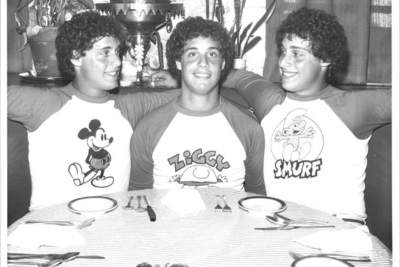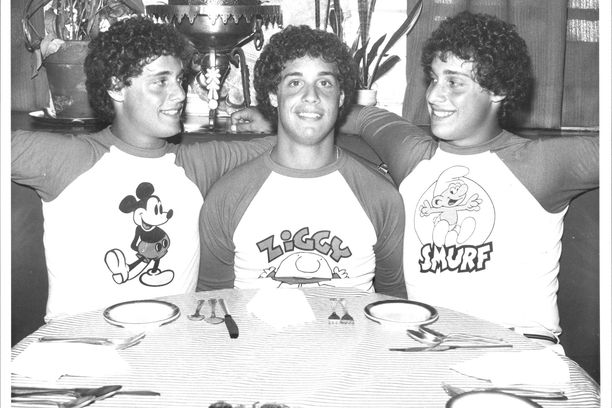A few weeks ago I met my boyfriend, who is an identical twin, at the movies to watch the critically acclaimed CNN documentary, “Three Identical Strangers.” Both being film buffs, we were excited to experience a film that was talked about nonstop at this year’s Sundance Film Festival.
It was talked about for good reason. The story of the New York long-lost-triplets seems too good to be true: three brothers, Robert “Bobby” Shafran, Edward “Eddy” Galland, and David Kellman discover that they are identical triplets after 19 years of living in different homes, all within a 100-mile radius of one another.
Upon reuniting, the world got to see how similar they were: they all smoked the same cigarettes, showed comparable athletic abilities in high school, and had similar tastes in women. The movie is clever in sharing these overlaps in the beginning, and then slowing zooming out to the big picture. Though they are identical, they are their own people.

Why do we love identical siblings? What about them is so cool that “Twin Days” are a regular theme during spirit week in high school? Our twin obsession could be a reason this story is still so interesting to us today, even though it took place largely in the ‘80s. We can’t fathom what it’s like to have someone that looks just like us but is somehow separate from us.
Throughout the film, I kept glancing over to my significant other trying to read his blank expressions. Many scenes made me laugh because of the questions and fascinations people had with the brothers. After six years of dating, friends and strangers still come up to me asking if I can tell the twins apart, or even if I am attracted to my boyfriend’s brother. Just like the wives of Bobby, Eddy, and David, I can tell the twins apart.
There is, I think, another reason this story resonates with so many viewers. Sometimes, we can be so excited about something we don’t fully understand that we poke and prod at it, looking for answers. Why are we willing to put others in danger in the name of science? Is it worth it?
This film shows what happens when we abuse the scientific method and care more about the answers than the test subjects themselves.
The documentary reveals that psychologist and Holocaust survivor Dr. Peter Neubauer studied many groups of Jewish identical twins and triplets who were given up for adoption. In the case of the film’s triplets, he placed each boy in a lower class, middle class, or upper-class Jewish family and completely withheld all information from the adoptive parents. They were told only that their children would be checked on periodically by the researchers.
The long lasting effects this experiment had on the brothers was profound. They all dealt with depression and forms of separation anxiety. In 1997, Eddie committed suicide.
The filmmakers provide a chance for the psychologists to defend their work and profession. This section doesn’t make the audience feel good because their cold and straightforward answers boil down to “the end justifies the means.” But what was the end goal exactly? How far will we go to satisfy our own curiosity?
The film forces us to fully feel the fact that the identical siblings never consented to this project. They don’t want to be treated like mutations. They aren’t guinea pigs.
Even after putting the triplets through a harmful, dangerous experiment, we are still no closer to understanding the dueling forces of nature vs. nurture. The brothers’ fate was always pre-determined because people had been meddling in it from the beginning.
“Three Identical Strangers” is now in select theaters and will air on CNN in 2019.
Erin Ben-Moche is a New Voices reporting fellow. She recently graduated with a degree in journalism from Oakland University.

